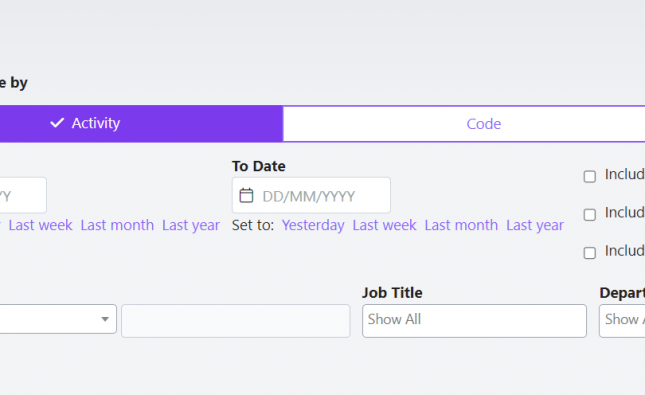People have been predicting a sharp rise in working from home for years. Sadly, it’s come to pass in a way few would have predicted, and nobody would have wished for.
The Covid-19 crisis continues to change the way we live and work in profound ways. Even for workplaces that can shift to a largely remote working model, it is a large change to make with very little preparation time. Individuals too are transitioning to performing their roles in ways they wouldn’t have predicted a few weeks ago.
In the midst of these difficulties and fast-moving changes, how does your training plan fit into all this?
A Remote Model of Learning
The key word for getting businesses through the coronavirus outbreak is “adaptability”. With eLearning, adaptability is one of its greatest strengths.
Employees working from home and juggling their job’s demands and a sudden increase in childcare responsibilities will need extra flexibility with hours. Rolling out eLearning courses is the perfect solution. Courses can be taken whenever it suits the learner and you can be sure that everyone is getting the same information.
Modern eLearning is designed to be accessible. People can take their courses on whichever device is most convenient or comfortable for them.
Training for Remote Workers
There are many topics that lend themselves to being the focus of refresher training during the period of coronavirus.
Cyber security is one of the most obvious. Being outside of the traditional working environment – for the first time for many – it can be easy to forget the basics of protecting yourself and your data. Some refresher training in this area can remind people of cyber sec’s importance and protect them, and your business, from anyone trying to take advantage of the situation by exploiting poor cyber security.
With such an upheaval in working practices, it can help to get a refresher on risk assessments. Spotting potential hazards is just as important at home and we might even forget to look out for them because we’re generally more at ease in a familiar environment.
Social media has been buzzing with people sharing their (often very improvised) home working stations. While amusing in many cases, it’s important to remember the need for good display screen equipment (DSE) set ups. Though this can of course be challenging in a household with minimal free space or with several people working from home at once, employers still have a duty of care to their employees to help them avoid musculoskeletal problems from bad DSE usage. Providing refresher training can help jog people’s memories.
Remote working is in itself a new challenge for many. Sending out general remote working training can be very helpful at a time like this. Even in a crisis, there are benefits to this style of working, and many might find themselves feeling more productive. Yet staying connected to others and being aware of the issues around remote working can be helpful.
One area that might be overlooked is mental health. Workplace stress was a huge, widespread issue even before the coronavirus outbreak. Current events will be exacerbating existing anxiety. Employers should do all they reasonably can to watch out for their employees’ mental health and support them where they need it. Stress management courses might help people to handle their current work stress – or even help with the stress from other areas of their lives.
Refreshing eLearning
Everyone involved in training knows it is not just a simple “one time and done” job. Our brains don’t work like that. We need our knowledge to be topped up and used regularly, with training filling in any gaps that might be left over from the first time round.
This is where eLearning really comes into its own. Training schedules can be adapted year on year to make sure the basics are still covered, but people aren’t taking the exact same course over and over again. People can take short courses to address any small gaps in knowledge.
Not at Home?
It’s important to remember that not everyone has the luxury of switching to a remote working model. Many jobs can’t be done remotely, including those of key workers such as hospital staff.
For their benefit and everyone else’s, we are making our Preventing the Spread of Infection course free for the next 12 months.


